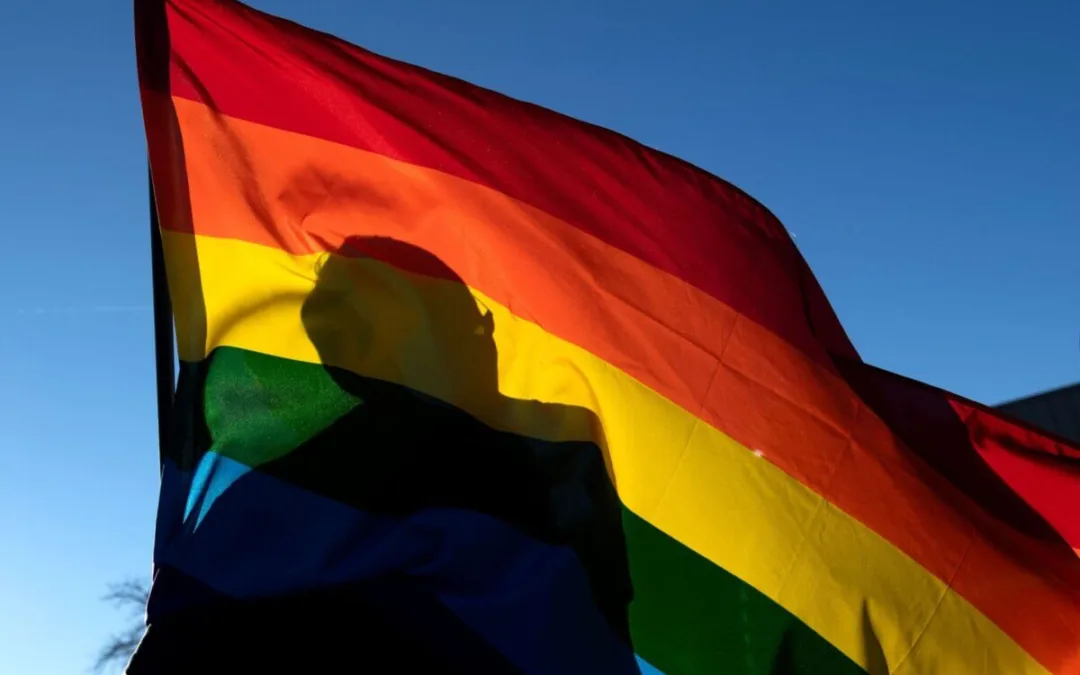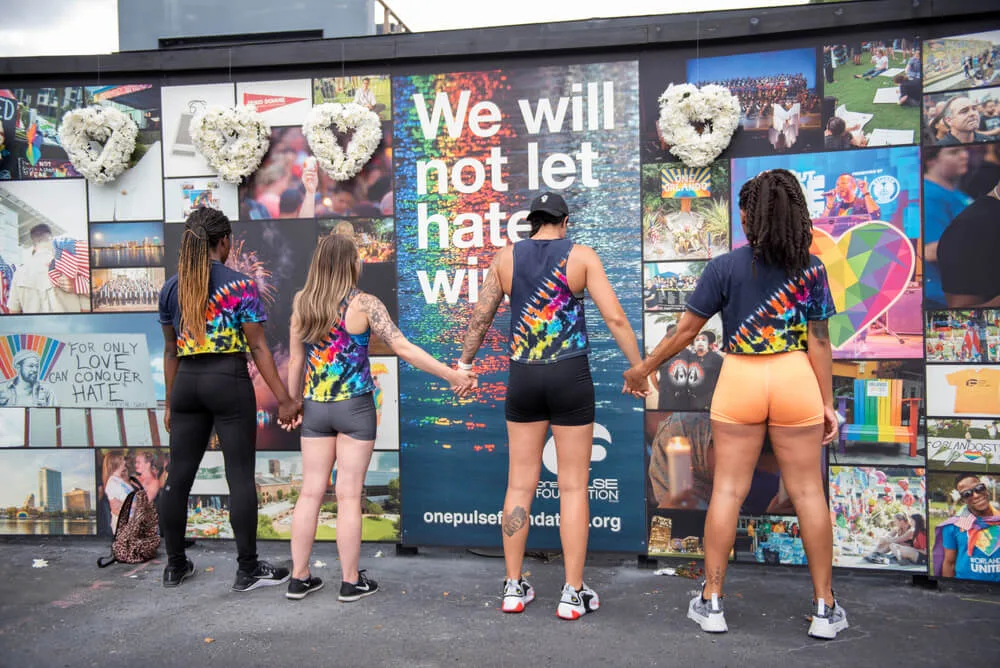
Image via Shutterstock
The Supreme Court decision protecting transgender workers was a huge win, but activists say there’s more work to be done.
On Sunday, tens of thousands of Americans marched in Brooklyn, embracing the message that “Black Trans Lives Matter,” a declaration that carries more weight after two Black trans women were killed last week.
Dominique “Rem’mie” Fells was “one of a kind,” her sister said. According to a friend, she “loved fashion, music, people,” and “having fun and being vibrant.” On June 8, Fells was found dead in the Schuylkill River in Philadelphia, Pennsylvania; she was 27. Her death has been ruled a homicide by the city’s Medical Examiner’s Office.
Family members described Riah Milton as a “joyful person” who “just wanted to be accepted for who she was.” Milton was killed in Liberty Township, Ohio, on June 9, at the age of 25. Her life was taken during an attempted robbery of her vehicle.
Fells and Milton’s deaths represent just the latest tragedies in what has been described by the American Medical Association as an “epidemic of violence” facing transgender people. Their deaths represent at least the 13th and 14th violent killings of transgender or gender non-conforming people in the United States in 2020, according to the Human Rights campaign. The real number, the HRC notes, could be higher “because too often these stories go unreported—or misreported.”
Their deaths came less than two weeks after the tragic death of Tony McDade, a Black trans man who was shot and killed by police in Tallahassee, Florida two days after George Floyd was killed by police officers in Minneapolis, Minnesota. Investigations into Fells, Milton, and McCade’s deaths are ongoing, but their killings have spurred anger and demands for change and justice, with advocates calling for the violence against transgender people to be addressed and receive the same care that non-trans victims receive.
“I am beyond sick of reading about my sisters being murdered. Black trans women deserve better. They deserve to live. As we honor and demand justice for Tony McDade, George Floyd, Breonna Taylor, Ahmaud Arbery, and countless others, we must do the same for Dominique ‘Rem’mie’ Fells and Riah Milton,” said David Johns, executive director of the National Black Justice Coalition in a statement. “As the nation declares that Black Lives Matter, we only see more tragedy. Dominique and Riah matter. Black Trans Lives Matter.”
The Philadelphia Office of LGBT Affairs also called for demonstrators who have rallied around George Floyd’s killing to honor and remember the lives of trans victims.
RELATED: While Marching for Black Lives, LGBTQ Protesters Faced Homophobic Slurs From Police
“Dominique Rem’mie Fells’ life mattered. We are reminded with this, and countless other painful losses—especially within our transgender communities—that there is much left to do until we achieve full equality, respect, and support for us all,” the office said in a statement. “The murder of transgender people—especially those of color—is truly an epidemic, and a crisis that we cannot afford to allow to persist any further.”
Other advocacy groups, activists and even some lawmakers have also spoken out against the killings of Fells and Milton.
Last week’s tragic killings highlight the disproportionate violence that can befall transgender Americans. In 2019, at least 26 trans people were killed in the United States, 91% of whom were Black women. But trans people also continue to find themselves victimized in other ways, including actions that are sanctioned by the nation’s leaders.
The Trump administration on Friday finalized rules overturning Obama-era protections for LGBTQ people in the healthcare system. The new rule defines gender as biological sex and will allow doctors, hospitals, and insurance companies to discriminate against transgender patients and deny coverage for transition-related treatments.
RELATED: Trans Southerners Don’t Feel Safe Seeking Health Care. That’s a Huge Problem in a Pandemic.
In a particularly cruel twist, the change was announced on the four-year anniversary of the Pulse nightclub shooting, in which 49 people were killed in the deadliest act of violence against LGBT people in U.S. history.
Trans people are also more likely than the general population to suffer from sexual abuse, housing and healthcare discrimination, experience homelessness, and be incarcerated. Trans Americans, especially women of color, are among the most vulnerable populations in the United States.
“Tragedy does not happen in a vacuum,” HRC President Alphonso David said in a statement. “We must do everything we can to ensure that we create policies and laws that lift up our transgender siblings, and communities where transgender people are not targeted for who they are.”
That same spirit is what drove Sunday’s march in Brooklyn and other rallies across the country, from Salt Lake City, Utah to Chicago, Illinois.
On Monday, after a week of horrifying headlines, the transgender community received a slice of good news: The Supreme Court ruled that the Civil Rights Act of 1964 protects LGBTQ employees from being fired because of their sexual orientation and gender identity. No longer can a transgender American be fired for who they are.
That ruling was celebrated across the country, including by Gov. Tom Wolf of Pennsylvania, where Fells was killed. But Wolf also noted just how much work remains to be done.
RELATED: Why the Supreme Court Ruling on LGBTQ Workplace Protections Is a ‘Watershed Moment’
“As the tragic murder of transgender woman and LGBTQ+ rights activist Dominique “Rem’mie” Fells shows, Pennsylvanians are still not free from discrimination against sex or race,” Wolf said in a statement. “This ruling is a cause for celebration, but it is also a reminder that there is still work to be done in ensuring every American and every Pennsylvanian has equality.”
David Johns of the National Black Justice Coalition echoed Wolf’s statement, calling the ruling a victory for the country. “Black queer and transgender people understand the necessity of federal protections more than most,” Johns said. But he, like Wolf, also reiterated the fight is far from over. “The Trump administration’s continued attacks on our communities and the recent murders of Dominique (Ree’mie) Fells and Riah Milton are sobering reminders of how much work there is left to do.”
Politics

Teamsters and UPS Reach Tentative Deal to Avoid Strike, 340,000 Workers to Get Raises
The tentative deal represents a huge win for full- and part-time UPS Teamster workers, who would get significant pay raises and better working...



One Republican Senator Is Blocking 265 Military Promotions, Leaving the Marines Without a Confirmed Leader
Sen. Tommy Tuberville's decision means these military officers are not getting the pay raises they’re owed, cannot move their families to wherever...
Local News



Teamsters and UPS Reach Tentative Deal to Avoid Strike, 340,000 Workers to Get Raises
The tentative deal represents a huge win for full- and part-time UPS Teamster workers, who would get significant pay raises and better working...



One Republican Senator Is Blocking 265 Military Promotions, Leaving the Marines Without a Confirmed Leader
Sen. Tommy Tuberville's decision means these military officers are not getting the pay raises they’re owed, cannot move their families to wherever...




